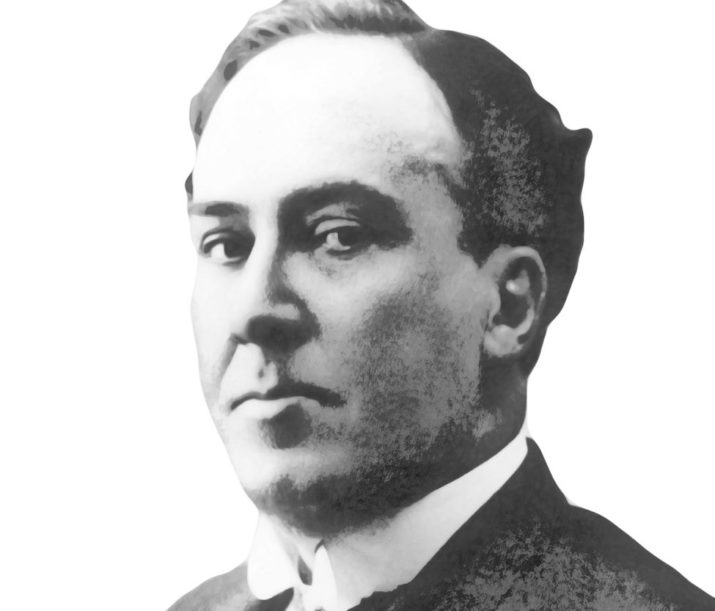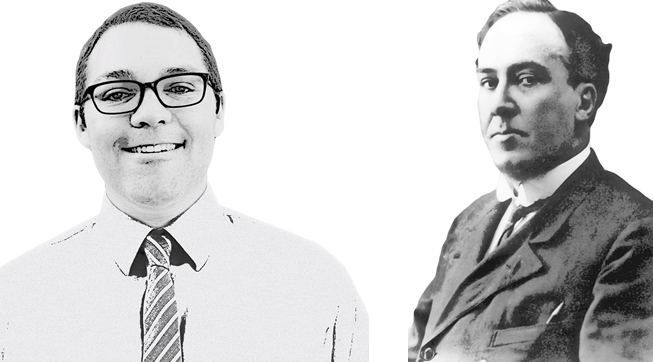

Translated from the Spanish by Daniel Evans Pritchard.
This is part of our special feature on Nationalism, Nativism, and the Revolt Against Globalization.
“The Young Nation”
It was a time of infamy and lies.
The nation itself was dressed up
like a squalid clown to draw
attention away from our wound.
That was then. We were young:
bad weather, worse omens,
we had nightmares in our hair
as the sea swelled with wrecks.
We swore we would abandon ship.
We said that we would sail away on
a silver galleon, eschewing the shore,
rudder and sail charging to the sea.
Even in the loss of that dream—
the debt from a century of failure—
we still sought the light as sacred
ideals drowned in this confusion.
Led by our anxious convictions,
we flexed, we preened, we abandoned
armor as clean as a mirror. We said,
“It’s bad, but tomorrow will be mine.”
Today is that tomorrow. The nation
is dancing in faux gold, faux fur,
twisted as an oak and drunk
on wine like blood from a sore.
Listen. If the will to change comes,
chase it. When the fire comes,
wake up, wake and let it fill you up
the way light burns inside a diamond.
“A Meditation”
Already the moon rises
over orange groves.
Venus shines in the sky
like a little glass bird.
Amber and beryl light
behind distant mountains
and over the oceans
a purple porcelain sky.
Night in the garden,
water in its fixtures—
the scent of jasmine,
nightingale of perfumes.
How it seems as if
the war were asleep
while Valencia’s flowers
drink the Guadalaviar.
Valencia of thin towers
and sweet nights. Valencia,
I will be with you even
when I cannot see you,
the fields grown in sand,
the seas receding to violet.
“Foreign in My Own Land”
Even among familiar hills and fields
I have become foreign in my own land,
where the Duero dances over gray stones
and dances through phantom oaks,
in mystical Castile, war-like Castile,
gentle, humble, proud Castile,
Castile of snobbery and of wealth.
But I was born in Andalusia.
And filled with childhood memories,
I dream of singing her songs—
of sunshine through waving fronds,
storks perched in bell towers,
the cities beneath an indigo sky
bereft of women, deserted squares
where orange trees hunch blazing
with fruit, the shadowy orchards
where the pale fruit of lemon trees
shines in a fountain’s water.
Spikenard, carnation, basil, and mint,
olive groves half-invisible under
a brash sun that stuns and blinds,
the lavender mountains where
the evening’s rouge spills out.
Without a line to anchor memories
to the heart, they have no life.
Tattered and worn, they are
the plunder of all remembering,
the payload memory carries in itself.
Someday, in blessed light, they’ll return
like immaculate bodies to the shore.
“Always Fugitive, Always Near”
always fugitive, always near
always concealed, always disdainful
always leaving, always untouched
always in black, always dreaming
always the bitter flower
always the night, always concealed
always fugitive, always caged
always your face
always the bitter flower
of your lips, always your bed
always near, always fleeing
always waiting, always waiting
always calling to you
always the night deepens
always the night
always fugitive, always near
Antonio Machado (1875–1939) was an influential Spanish poet, best known for depicting the landscapes and common people of Spain and for his exploration of existential and moral topics. A vocal supporter of the Spanish Republic, Machado was forced to flee Spain during the siege of Madrid. He died in exile and is buried in Collioure, France.
Daniel Evans Pritchard is a writer and editor living in Greater Boston. He is founding editor of The Critical Flame, a journal of literary nonfiction, criticism, and interviews. His writing has appeared at Los Angeles Review of Books, Missouri Review, Anomaly, Harvard Review, and elsewhere.
Published on February 1, 2018.




